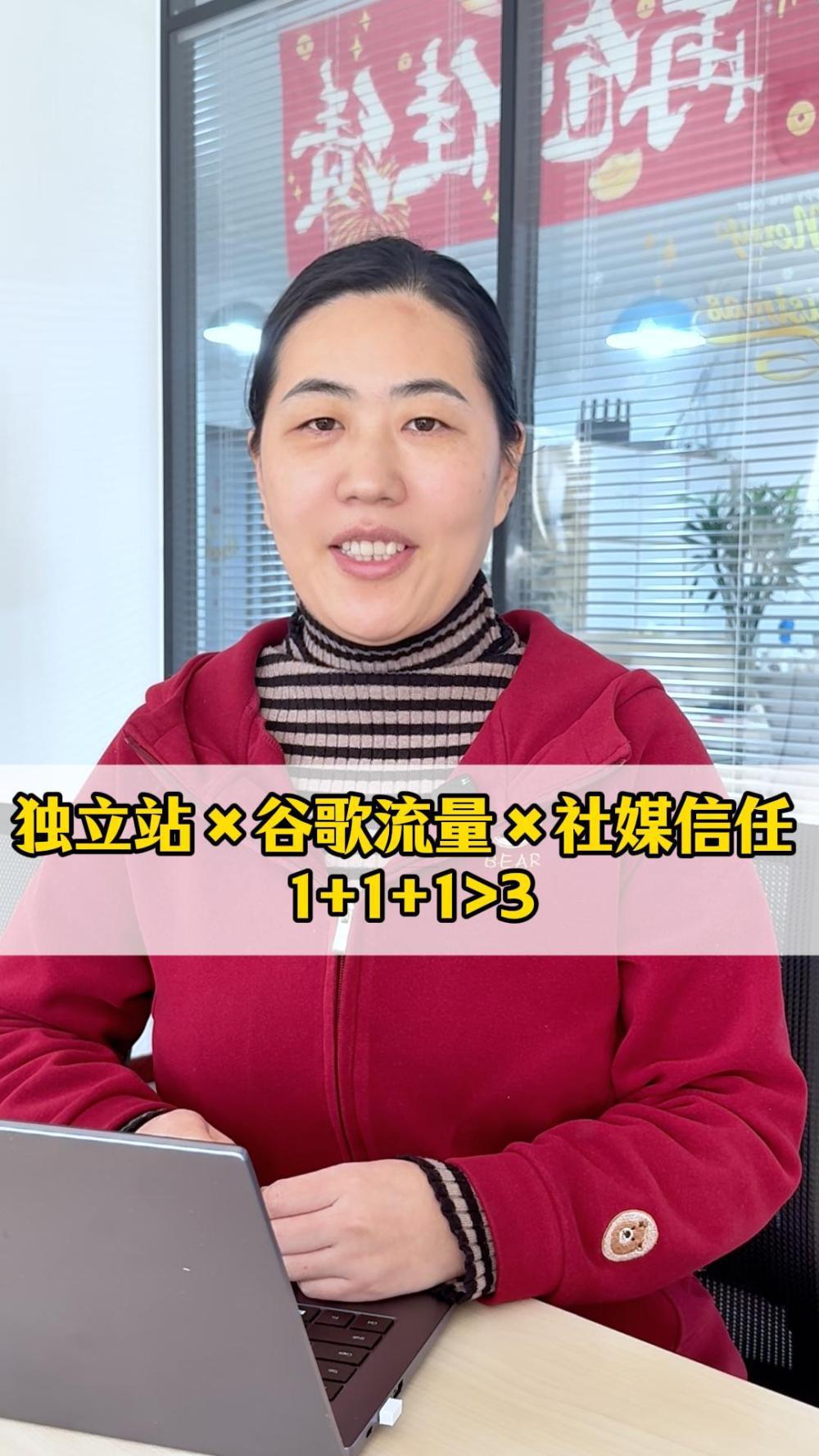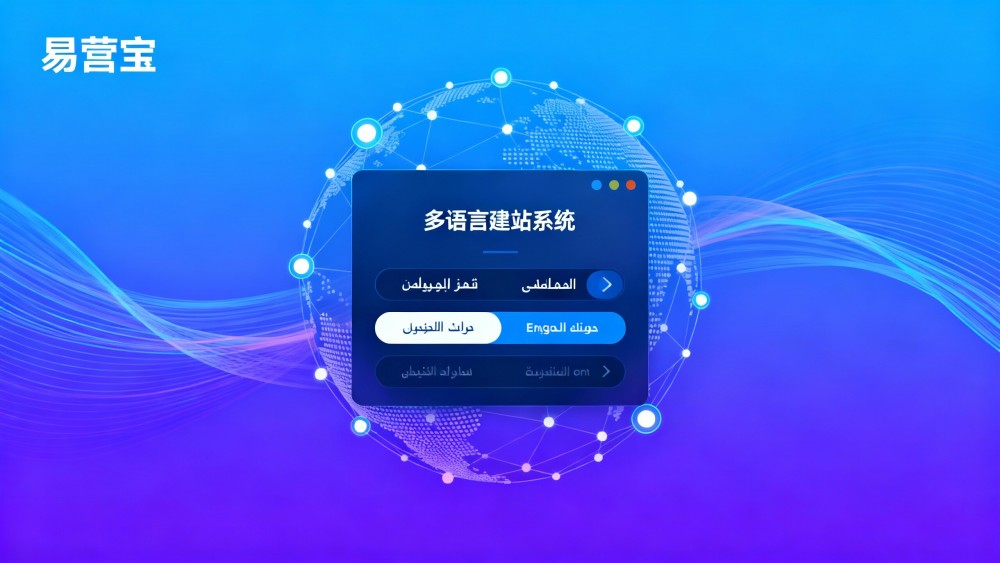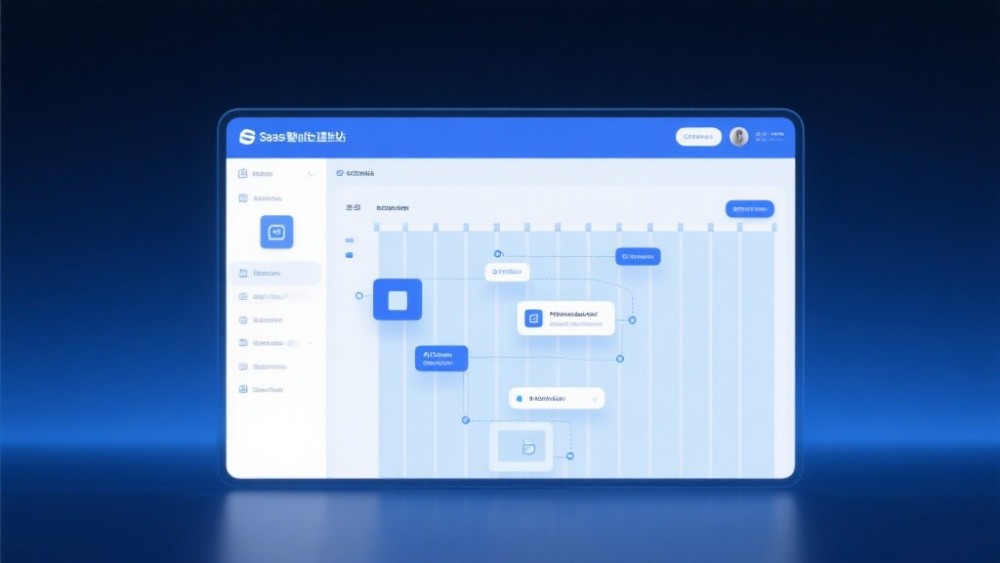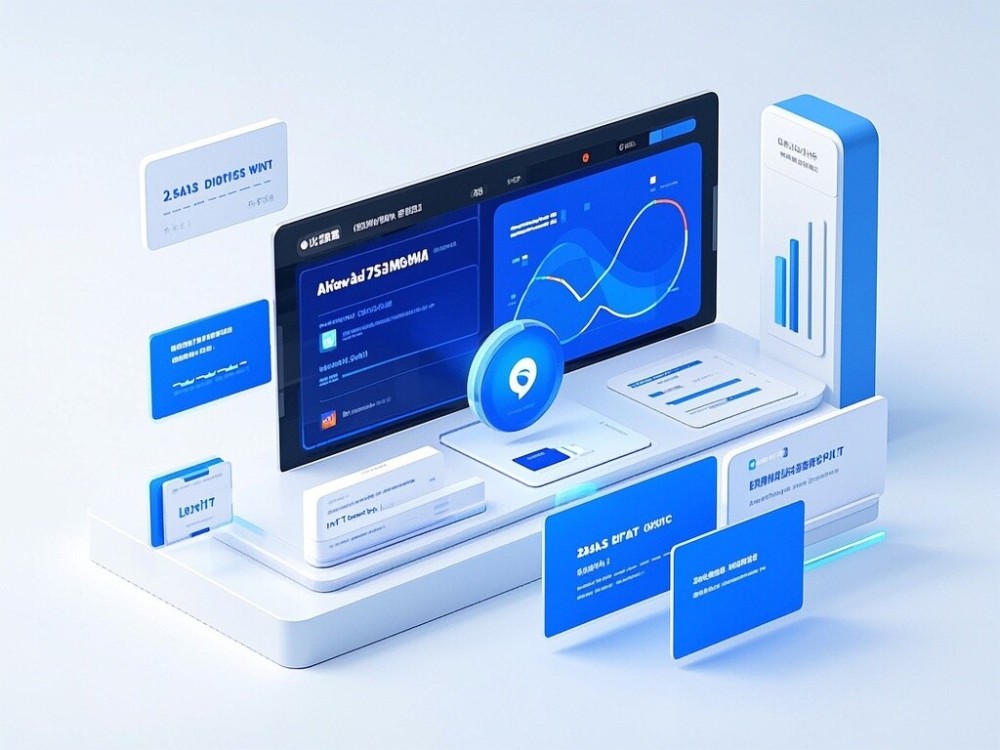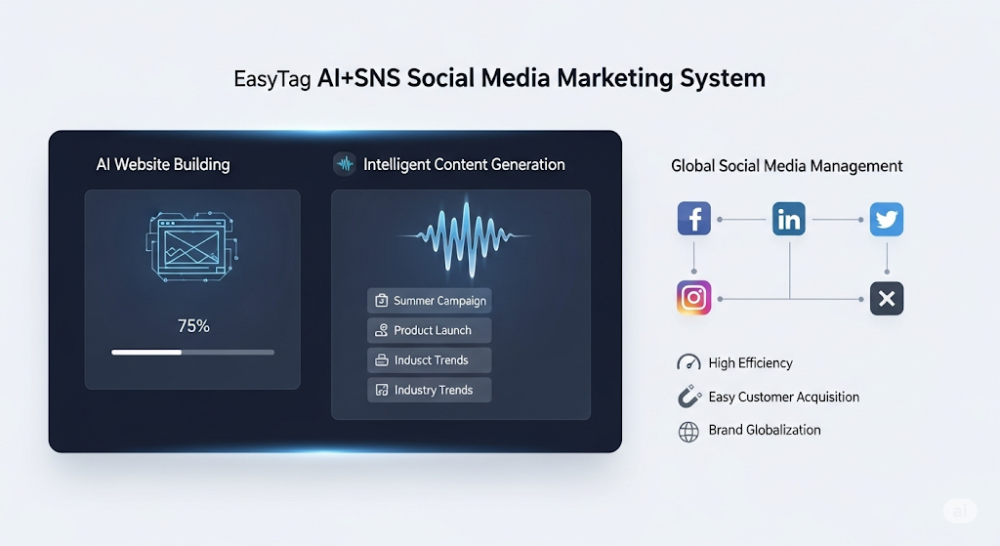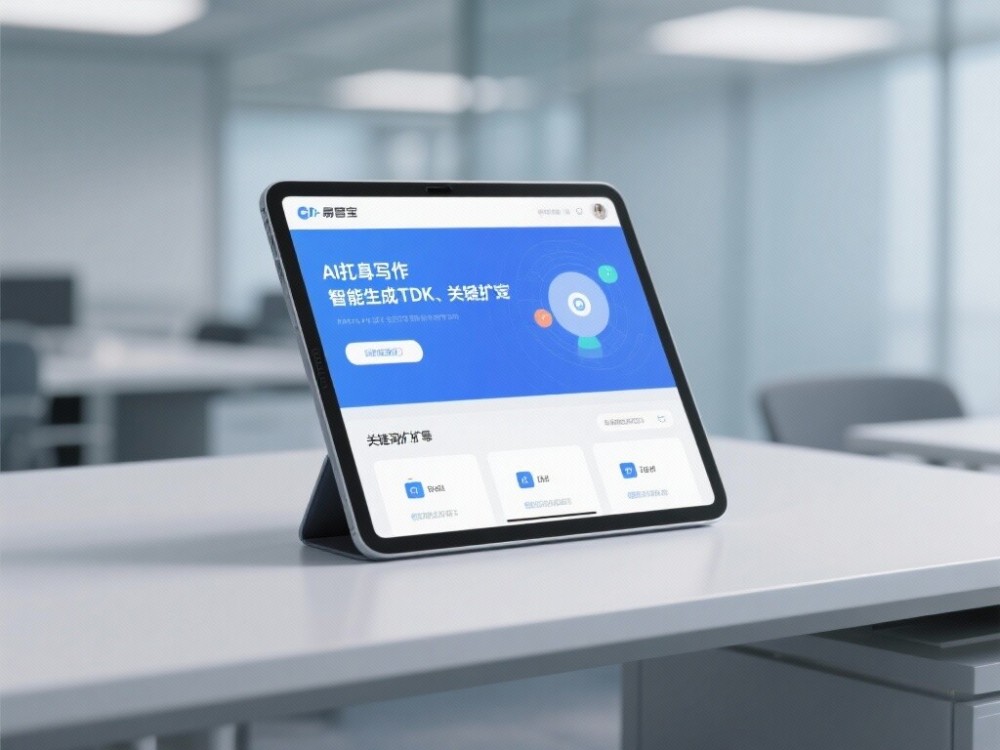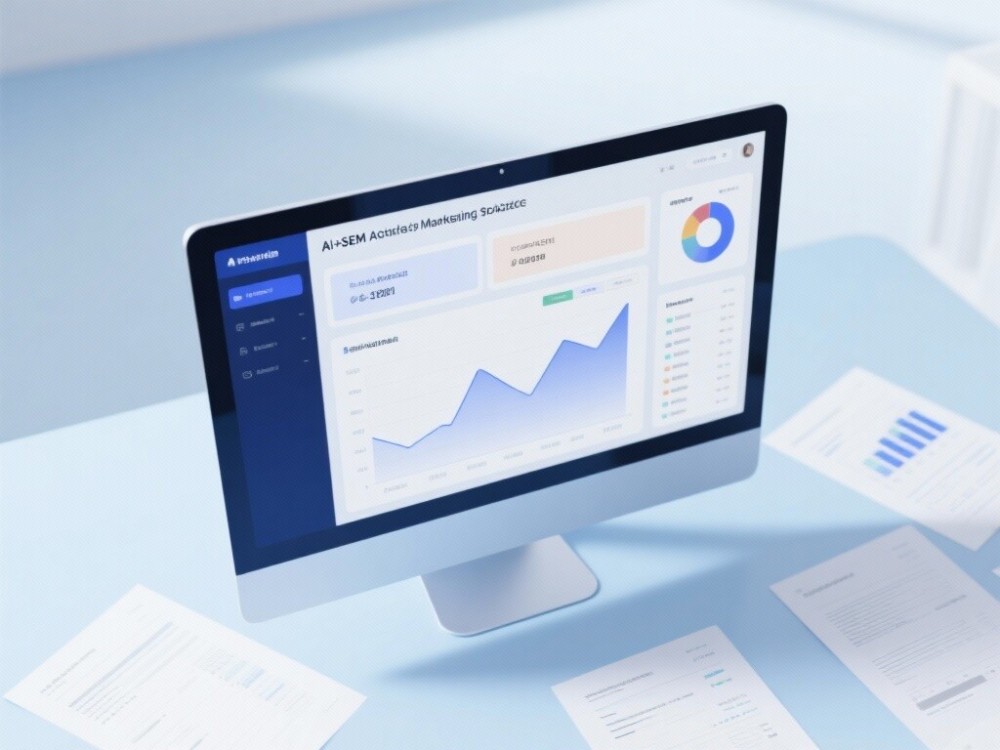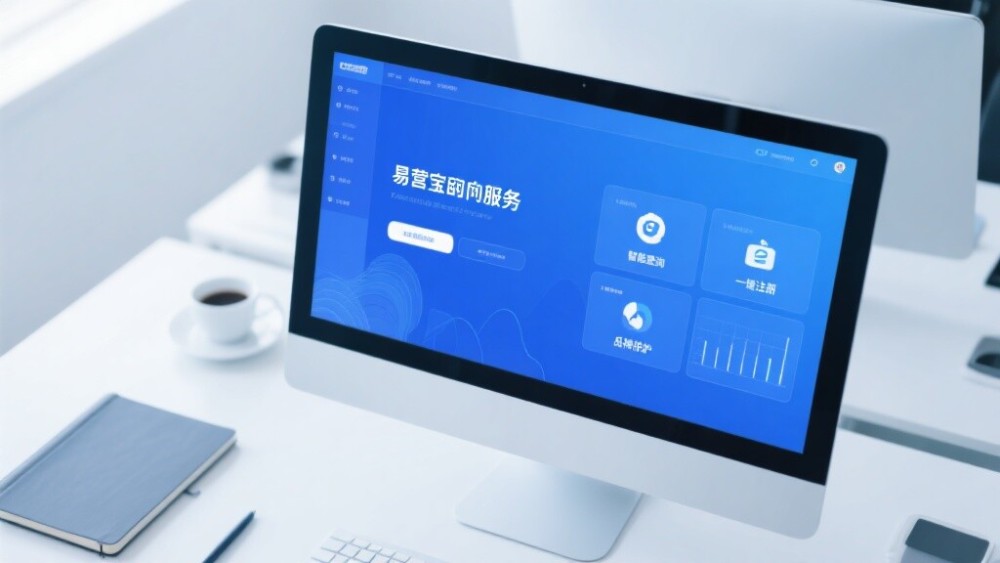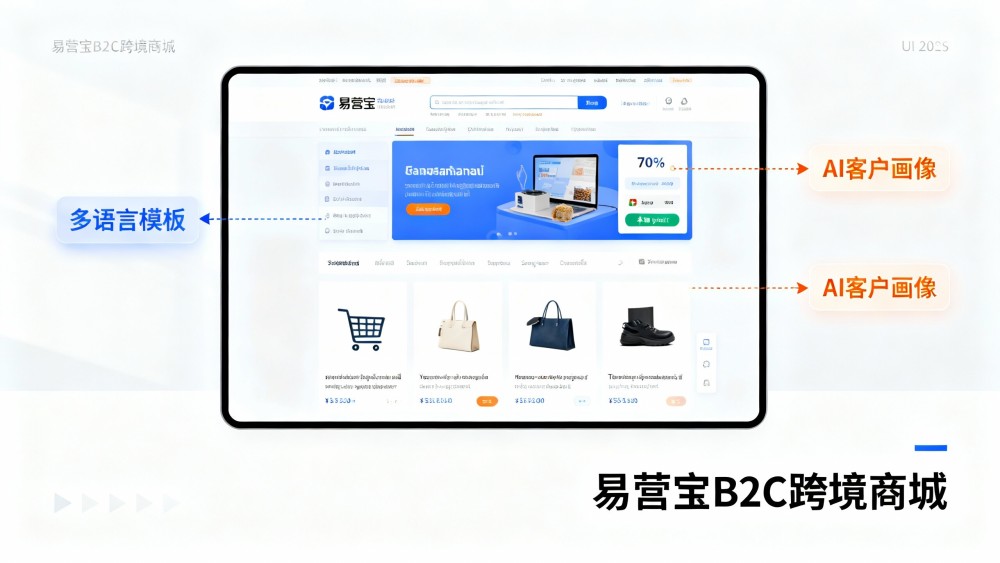- Can Yiyingbao's multilingual foreign trade website building service improve overseas lead conversion? Enterprise test report2026-01-27View details
- Is Yiyingbao's intelligent website building system good? See real user experiences and ROI cycles from enterprise clients2026-01-27View details
- 2023 Must-Read for Foreign Trade Website Building: Actual Performance of EasyYunbao Multilingual System in the EU Market2026-01-26View details
- How does EasyYingbao's multilingual marketing system perform? See how this export company achieved 200% traffic growth in 3 months2026-01-26View details
- How is EasyYunBao's foreign trade website service? In-depth evaluation of enterprise-level website solutions in 20232026-01-26View details
- From Yandex SEO company rankings: New opportunities in Russia's 2024 market traffic2026-01-26View details
- How effective is Yandex advertising? B2B foreign trade brand actual test report2026-01-26View details
- How is EasyStore's intelligent website building, and is it worth adopting in 2026 foreign trade website construction projects?2026-01-25View details
SEO Optimization Guide: 5 Key Steps to Improve Your Business Website Conversion Rate
In today's digital business environment, corporate websites are not only a window for brand display, but also an important sales channel. According to statistics, the traffic conversion rate obtained through SEO is about 8-10 times higher than that of paid advertising. However, many companies often fall into misunderstandings in SEO practice - either they pay too much attention to rankings and ignore conversions, or they adopt outdated optimization strategies. This article will reveal how to achieve a dual increase in traffic and conversions through scientific SEO methods.
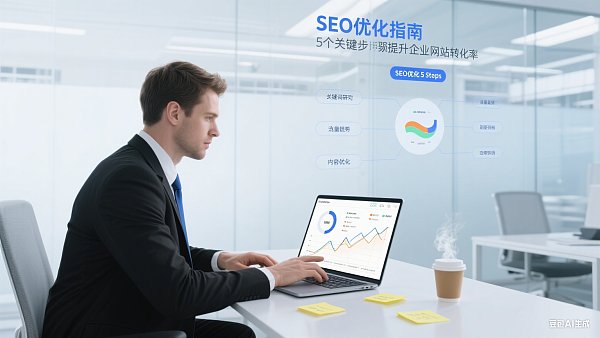
Step 1: Accurate keyword positioning and intent analysis
Effective SEO optimization starts with a deep understanding of user search intent. It is recommended to use professional tools such as SEMrush or Ahrefs to focus on mining three types of keywords:
1. Commercial Intent Keywords
For example, phrases with clear purchasing intentions such as "enterprise website building service quotation" and "which CRM system is the best". Although the search volume of such keywords may not be high, the conversion value is extremely high. A B2B company increased the number of inquiries by 300% by optimizing 20 precise business keywords.
2. Solution-oriented keywords
For example, "How to solve slow website loading speed" and "How to increase email open rate". This type of search shows that the user is in the problem-solving stage, which is a golden opportunity to establish professional trust.
Step 2: Content architecture and user experience optimization
Google’s EEAT (Expertise, Authoritativeness, Trustworthiness) standards require that content must:
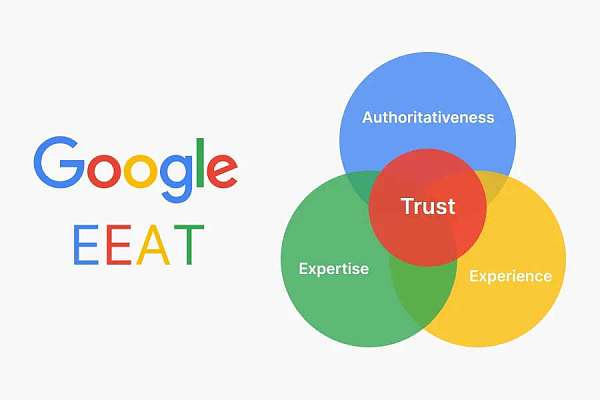
1. Create Topic Clusters
Build a supporting content network around the core business page. For example, a software company can use "project management software" as a pillar page and create content around sub-topics such as "remote team collaboration skills" and "agile development tool comparison".
2. Optimize reading experience
Adopting an F-shaped reading layout, with key information placed first on the home screen, an e-commerce website increased the average dwell time from 1 minute 12 seconds to 2 minutes 45 seconds by restructuring the content hierarchy.
Step 3: Technical SEO Infrastructure Building
Technical defects may prevent high-quality content from being included:
1. Mobile-first indexing
Make sure that the website loads in less than 3 seconds on mobile devices. Using Google's PageSpeed Insights tool, a service provider reduced the mobile version bounce rate by 28% through lazy loading of images.
2. Structured Data Markup
Adding Schema tags such as products and FAQs can make search results richer. After implementation on a B2C website, the click-through rate increased by 40%.
Step 4: Authoritative signal construction
Google trusts authoritative content more:
1. Expert endorsement strategy
Invite industry KOLs to participate in content creation or provide testimonials. A medical platform increased the ranking of related keywords by an average of 12 places through expert-signed articles.
2. Acquisition of high-quality external links
Attract natural external links through data-driven content (such as industry reports and statistical yearbooks). After the manufacturing company released the "2023 Supply Chain White Paper", it was cited by 87 educational institutions and media.
Step 5: Conversion Path Optimization
SEO traffic should ultimately lead to business goals:
1. Smart CTA settings
Dynamically adjust the call to action based on the depth of user visits. A SaaS company test found that displaying a demo application button after the user browses 3 pages has a 65% higher conversion rate than the first screen CTA.
2. Continuously optimize the funnel
By using tools such as Hotjar to analyze user behavior, an educational institution increased its registration conversion rate by 22% by optimizing the trust symbols (certification badges, student cases) on the course introduction page.
It takes 3-6 months to implement these 5 steps, but companies that stick to them generally achieve: 50-200% increase in natural traffic and 30-80% increase in conversion rate. It is recommended to conduct keyword performance audits every month and update content strategies every quarter to maintain a competitive advantage in algorithm updates.
If you have any questions about the construction and operation of foreign trade websites , please contact Yiyingbao technical customer service WeChat: Ieyingbao18661939702, and the staff will answer you wholeheartedly!
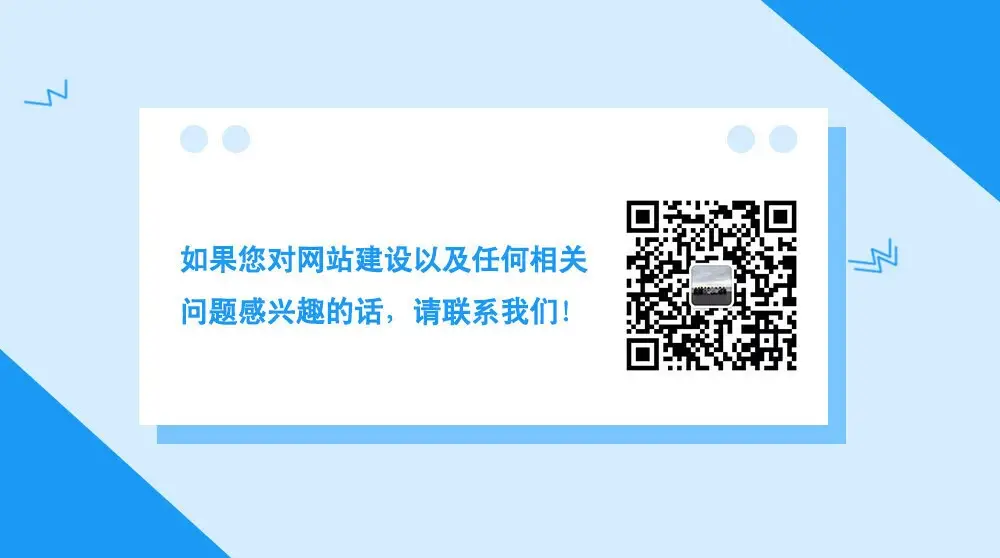
The picture resources are from the Internet. If there is any infringement, please contact 400-655-2477
Related Articles
Related Products


